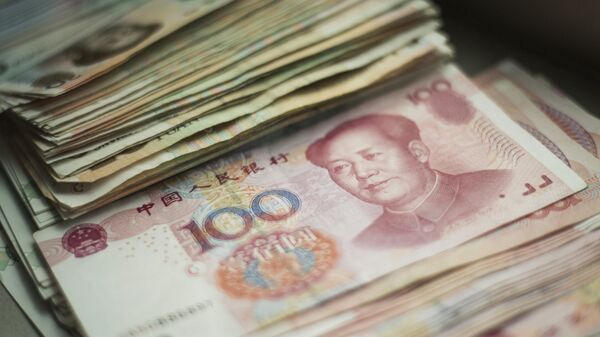Spuntik: Why has both manufacturing and yuan hit their lowest mark now?
Prof. Stuart Orr: Aye, it certainly has passed over long-term downwind trend and we've seen prime evidence of this course of the really, you know, we had a couple of dips, one in February, a significant one in February this year.
And it does reflect some loss of export activity. However, I think that a lot of this is really due to internal softening of demand as China starts to slow down economic growth in response to increasing costs of raw materials and an escalating wage cost which is obviously going to make China noncompetitive in the future if it does not get control. So, as we are seeing costs go up in China and that's another reason for this downturn.
Sputnik: Now, some analysts predict that the one could soon fall below the psychologically important level of 7 RMB to the dollar. How likely is that?
READ MORE: China's Redefinition of BRI Has Brought it Closer to India — Observer
Obviously, the US is a major market and has a significant effect. But China does have a fiber of insulation and as I suggested before what I think we are seeing is more of internal correction as China adjusts its economy and as other internal factors start to have appliance and whether one that it drops below that level or not, will be interesting to see.
It costs companies a lot of money to rearrange partnerships, trade deals and contracts, supply transportation routes and so forth. So it is not as companies can just, and industries can just quickly switch from one supplier to another.
So, it's quite likely that demand won't diminish that much and as I said it [at the] same time this is growing internal market which is going to prop up a demand. Even though it certainly has relaxed a lot, it will still hold up quite a good level of demand for the current capacity.
Sputnik: You're saying that you think there's going to be a correction but you don't really think that it will fall any further, and that this symbolic development is a great reason for concern; do you think it's going to stop after this correction?
Prof. Stuart Orr: I think it's a necessary correction as China's manufacturing industry moves from a low-cost manufacturing base to increasing levels of technical sophistication and probably, ultimately, to levels of excellence and other stages that most Western countries went through in the 1980s.
Sputnik: Whenever this devaluation in a currency is due, that does have advantages and benefits. After the Brexit vote, the pound obviously dropped significantly, but consequently that had a positive effect on the economy and a lot exports were a lot cheaper for customers. I suppose that the same sort of premise could be put forward in China's case, it's a massive economy; is there going to be an actual benefit for the country from a low yuan then?
Prof. Stuart Orr: It's likely to cancel (out) in the case of the US market, for example, it's likely to cancel some of the trade restrictions that the US government and Trump have been placing on them. It certainly will provide a bit of a correction, which is more encouragement, I think, for a lot of US manufacturers just to maintain their existing Chinese supply base with possible slight cost increases, given that they may also be balanced by a more attractive exchange rate.
The views and opinions expressed by the speaker do not necessarily reflect those of Sputnik.



